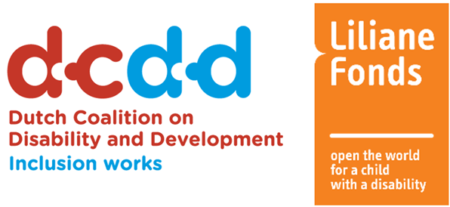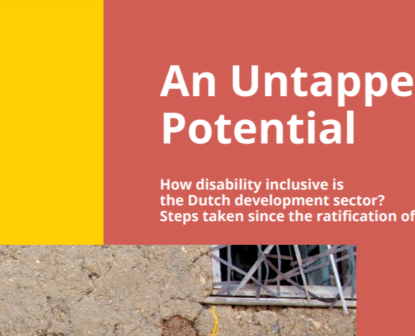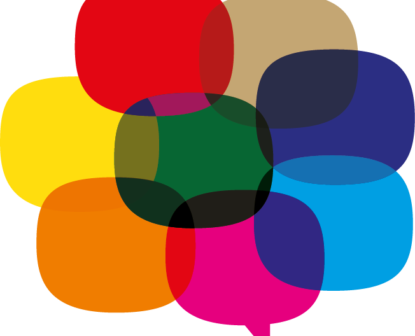Project
Voices for Inclusion
-
Amount Funded
220,000 EUROProject Duration
01 Jan 2019 - 31 Dec 2020 -
-
Lead organisation
Partners
-
The Dutch Coalition on Disability and Development (DCDD) was founded in 2000 to combine the forces of individual experts and development organisations to advocate for the inclusion of people with disabilities. DCDD is a membership-based coalition of Dutch-based organisations and individuals operating in the field of disability and development cooperation. DCDD’s main goal is to achieve access and participation of people with disabilities in societies in the Global South through inclusive development cooperation.
DCDD focuses on the following sub-goals:
1) Promote the adoption of inclusive development cooperation policies and practices by civil society organisations, non-governmental organisations, private sector, and the Dutch government, based on a human rights perspective of people with disabilities.
2) Monitor of the implementation of the United Nations Convention of the Rights of People with Disabilities -especially article 32 by the Dutch government.
3) Encourage further cooperation and learning on disability-inclusion in the field of development cooperation.
For the Voices for Inclusion project, DCDD collaborates with the Liliane Foundation (LF) as implementing partner. LF is a Dutch based organisation, striving for an inclusive society for children and young people with disabilities in 35 countries in Asia, Africa and Latin America. Together with local partner organisations, the LF works on improving the functioning of the child and its family and making their environment accessible. The uniqueness of LF lays in its grassroots lobby and advocacy approach towards disability rights. The LF believes that empowerment of children, youngsters and their families to become role models and agents of change who can stand up for themselves is the most impactful strategy of achieving systemic changes and advancing disability rights in their contexts. Children and youngsters themselves have a potential to be the best and loudest advocates.
-
Organisation
The Dutch Coalition on Disability and Development (DCDD) was founded in 2000 to combine the forces of individual experts and development organisations to advocate for the inclusion of people with disabilities. DCDD is a membership-based coalition of Dutch-based organisations and individuals operating in the field of disability and development cooperation. DCDD’s main goal is to achieve access and participation of people with disabilities in societies in the Global South through inclusive development cooperation.
DCDD focuses on the following sub-goals:
1) Promote the adoption of inclusive development cooperation policies and practices by civil society organisations, non-governmental organisations, private sector, and the Dutch government, based on a human rights perspective of people with disabilities.
2) Monitor of the implementation of the United Nations Convention of the Rights of People with Disabilities -especially article 32 by the Dutch government.
3) Encourage further cooperation and learning on disability-inclusion in the field of development cooperation.
For the Voices for Inclusion project, DCDD collaborates with the Liliane Foundation (LF) as implementing partner. LF is a Dutch based organisation, striving for an inclusive society for children and young people with disabilities in 35 countries in Asia, Africa and Latin America. Together with local partner organisations, the LF works on improving the functioning of the child and its family and making their environment accessible. The uniqueness of LF lays in its grassroots lobby and advocacy approach towards disability rights. The LF believes that empowerment of children, youngsters and their families to become role models and agents of change who can stand up for themselves is the most impactful strategy of achieving systemic changes and advancing disability rights in their contexts. Children and youngsters themselves have a potential to be the best and loudest advocates.
-
Project
The Voices for Inclusion project, coordinated by Dutch Coalition on Disability and Development (DCDD) and Liliane Foundation, organises a series of peer-to-peer learning exchanges with a focus on intersectionality and builds on two insights resulting from the Breaking down Barriers learning trajectory by the Liliane Foundation and the African Studies Centre in Leiden.
Firstly, this brings great opportunities for different marginalised people’s movements to learn from each other; and secondly, effective advocacy requires recognition that every person has different identities, which intersect and interact with each other and increases the level of discrimination someone faces (for example, girls living with disabilities face triple discrimination on the basis of their age, gender, and disability).
The Voices for Inclusion project provides a platform for marginalised groups to come together to exchange, learn and work together towards a more effective and inclusive advocacy. The peer-to-peer learning process takes place in two-phases, which hopefully results in a deep linking and learning process that helps the participating organisations to (self) identify best practices, encourage innovations, provide spaces for mutual learning, and strengthen the advocacy capacities of organisations representing the Voice target groups.
In the first phase, peer-learning takes place locally in five countries. 15 to 20 representatives of different marginalised people’s organisations (3 – 4 per country) undertake action-research to learn from each other’s advocacy projects/campaigns. They discuss their findings in learning events that bring together several Voice target groups.
The second phase takes the local lessons learned to the Netherlands where the findings of different countries are exchanged and discussed. During a public event, two awards are given to the best practice and to the best innovative idea. The follow-up will be the actual implementation of the two awarded projects, one for best practice and one for the best innovative idea.
-
-
The Voices for Inclusion project, coordinated by Dutch Coalition on Disability and Development (DCDD) and Liliane Foundation, organises a series of peer-to-peer learning exchanges with a focus on intersectionality and builds on two insights resulting from the Breaking down Barriers learning trajectory by the Liliane Foundation and the African Studies Centre in Leiden.
Firstly, this brings great opportunities for different marginalised people’s movements to learn from each other; and secondly, effective advocacy requires recognition that every person has different identities, which intersect and interact with each other and increases the level of discrimination someone faces (for example, girls living with disabilities face triple discrimination on the basis of their age, gender, and disability).
The Voices for Inclusion project provides a platform for marginalised groups to come together to exchange, learn and work together towards a more effective and inclusive advocacy. The peer-to-peer learning process takes place in two-phases, which hopefully results in a deep linking and learning process that helps the participating organisations to (self) identify best practices, encourage innovations, provide spaces for mutual learning, and strengthen the advocacy capacities of organisations representing the Voice target groups.
In the first phase, peer-learning takes place locally in five countries. 15 to 20 representatives of different marginalised people’s organisations (3 – 4 per country) undertake action-research to learn from each other’s advocacy projects/campaigns. They discuss their findings in learning events that bring together several Voice target groups.
The second phase takes the local lessons learned to the Netherlands where the findings of different countries are exchanged and discussed. During a public event, two awards are given to the best practice and to the best innovative idea. The follow-up will be the actual implementation of the two awarded projects, one for best practice and one for the best innovative idea.
-
News





